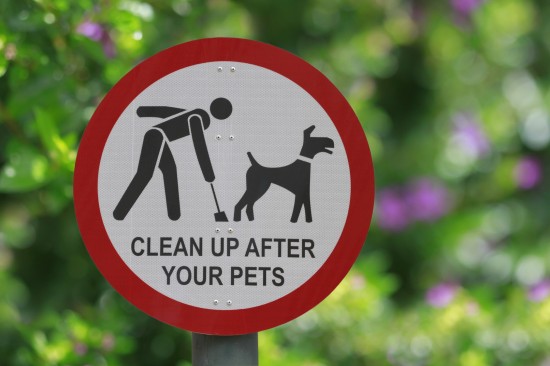
Whether you are a first time parent or a seasoned ferret owner, you’ll find what you have most in common with each other is that your fuzzies, knowingly or not will be experts at seeking out trouble, hide-aways, or items that they should not be getting into. It is important to remember, whether your ferrets live mostly in their cage, or have full run of your home or rooms in it, that you need to take every precaution possible to properly ferretproof areas in which your ferrets will have access.
Ferrets can’t resist the opportunity to explore their way into every little hole (generally as small as 2″ X 2″, sometimes smaller when kits or smaller adults are in your home), which may lead to trouble especially when the hole is under or behind a refrigerator or other appliances which can expose your ferret to fans, exposed wires, as well as possible exits from your home. Your kitchen and laundry areas tend to be extremely problematic, so be sure to locate and seal any holes discovered and also make sure all appliances are located as close to the wall as possible.
Ferrets can climb or jump atop counters as well, so make sure knives or other utensils or their holders are unavailable to your ferrets because your fuzzy may investigate or even worse knock them over causing injury to your ferret or even you! Ferret parents who live in apartments need to be extra vigilant. Many times due to laziness, or other reasons, holes can be left open along your cabinetry. Also, depending on the ferrets size, if you have a low hanging “wall mounted” a/c unit, extra caution needs to be taken to assure your ferret does not crawl into the unit, or even worse crawl outside leaving them vulnerable to the elements, predators, becoming lost, or even a nasty fall.
Keep in mind ferrets can open cabinets and drawers. These items are not only dangerous but could also lead to unnecessary frustration on your part depending on what is placed in them. Make sure you heaters or ducts are secure. You could block these openings with wood or wire mesh, but be sure to leave existing ventilation for your appliances even if you have to cover openings. With doorways, you could use a smooth piece of plywood or Plexiglass which you’d slide into the slots attached to its sides. Recliners and sofa-beds are extremely dangerous for your ferrets.
Unfortunately many ferrets become stuck or are crushed by the action of the springs and arms. These items are difficult to ferretproof, although you could try putting them in a room that is off limits to your ferrets. Couches and beds can also be dangerous especially if your ferret finds a way into the springs or stuffing. It’s scary to think, that sitting down to rest on your sofa could negatively impact your ferret! Aside from diligence, you may want to seal off couches and box springs (especially) with chick wire or something similar as an extra precaution.
Also you should look around your ferrets play area (outside & even inside their cage). Make sure to keep anything spongy out of reach, as well as fragile items. Ferrets are good climbers and jumpers, also succeeding in finding ways to go places you may think impossible to reach. Ferrets can get onto a sofa, into the trash, atop high shelves on bookcases, into a bathtub or toilet, or even into openings in the back of a stereo speakers. Ferrets can also open cabinets or drawers, unzip backpacks, and climb into drawers from beneath or behind them in order to get onto a desk or kitchen counter.
Other things to investigate
There are obvious dangers such as household cleaners, which ferrets may sometimes try to drink. Also be particularly mindful of sponges, erasers, shoe insoles, earplugs, Silly Putty, foam rubber (even inside your furniture), Styrofoam, insulation, door stops, as well as anything else that is spongy or springy. Ferrets enjoy chewing on this type of thing, and the swallowed pieces can lead to intestinal blockages or other health issues. Another little quirk about ferret’s, is that some ferrets enjoy dining on soap from time to time. This may lead to diarrhea, however ingesting large quantities could cause even more serious health problems. Make sure to keep all of your food away from your ferret. Even though many Human foods are acceptable for ferrets, anything in large quantity may harm your ferret.
Be alert for drowning situations such as full bath tubs. Remember, mom always said “leave the toilet seat down”; and with good reason as your ferret may become trapped inside the bowl which could lead to exhaustion (from panic) and possible drowning. Buckets full of water or paint can also be drowning or potential poisoning hazards. You ferret could also tip them over. The rolls from toilet paper or paper towels can be a problem because a ferret could get their heads stuck in them, possibly choking or suffocating. If you let your ferret play with plastic bags, you should remove the handles and cut a slit in the bottom to allow your ferret a way out as well as eliminating potential strangulation.
Some ferrets may have additional ferretproofing needs. For example, some ferrets like to eat paper, cloth, or plastic bags, which may cause intestinal blockages. Also some ferrets like chewing on electrical cords and plants. Hopefully in these cases you can catch them prior to any unfortunate events take place because it is possible for your ferret to receive life threatening jolts or even become poisoned by household plants. In general, it’s best to hide all cords as best as possible; just as important, know what types of plants you place in your home, many of which can be poisonous to many pets, not just ferrets. A good solution to these types of behavior would be to place Bitter Apple on the cord or plant which can help persuade your pet from chewing on it.
Steps toward ferret home harmony?
Once your home is ferretproofed, it’s important to continually maintain it. Be mindful of your ferret’s toys, looking for cracks, tears, and chips. Also, be aware that you too may harm your ferret. Be sure to double-check your dishwasher, refrigerator, washer and dryer prior to closing them or turning them on. Also watch where you sit and walk because a chair, throw rug, or pile of laundry may be hiding a napping ferret.
Matthew Humphries – http://www.ferret.com
 Dealing With Dog Mess - Some Novel Approaches
Dealing With Dog Mess - Some Novel Approaches
 German Wirehaired Pointer Hereditary Health And Longevity
German Wirehaired Pointer Hereditary Health And Longevity
 Additional Dog Care Factors To Bear In Mind If You Live In A Flat
Additional Dog Care Factors To Bear In Mind If You Live In A Flat
 How to Find the Perfect Dog – For YOU!
How to Find the Perfect Dog – For YOU!
 Glow Sticks - A Potential Hazard To Your Dog
Glow Sticks - A Potential Hazard To Your Dog
 Canine Leiomyosarcoma - Cancer Of The Muscle Tissue
Canine Leiomyosarcoma - Cancer Of The Muscle Tissue
 Walking A Reactive Dog On The Lead
Walking A Reactiv
Walking A Reactive Dog On The Lead
Walking A Reactiv
 3 Gorgeous Breeds Of Bobtail Cats
3 Gorgeous Breeds
3 Gorgeous Breeds Of Bobtail Cats
3 Gorgeous Breeds
 8 Adorable & Wrinkled Dog Breeds That Will Make You Smile
8 Adorable & Wrin
8 Adorable & Wrinkled Dog Breeds That Will Make You Smile
8 Adorable & Wrin
 Why Do Some Dogs Become Aggressive At Mealtimes?
Why Do Some Dogs
Why Do Some Dogs Become Aggressive At Mealtimes?
Why Do Some Dogs
 How To Feed Individual Diets In A Multi-pet Household
How To Feed Indiv
How To Feed Individual Diets In A Multi-pet Household
How To Feed Indiv
Copyright © 2005-2016 Pet Information All Rights Reserved
Contact us: www162date@outlook.com